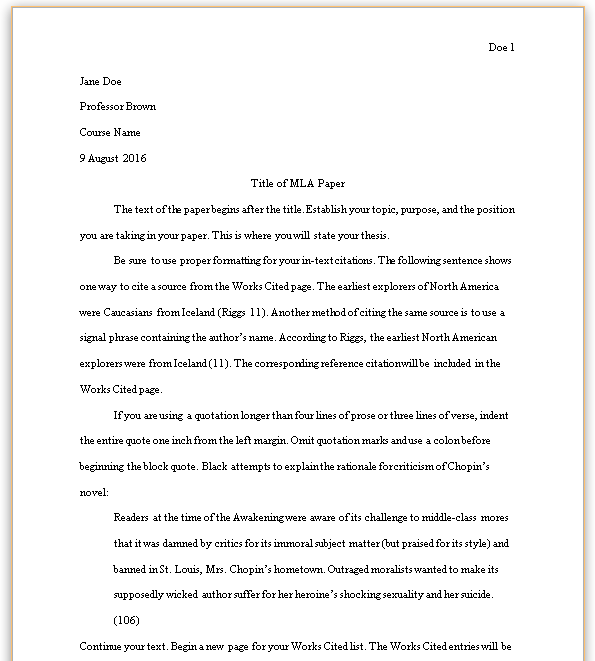The Importance of Academic Writing Skills for College Success
Introduction:
Academic writing is a vital skill every college student must master. Whether you’re writing research papers, essays, lab reports, or even reflective journals, academic writing is the vehicle through which your ideas are communicated, evaluated, and critiqued. Strong academic writing doesn’t just improve your grades — it shapes your future academic and professional success.
In this blog post, we’ll explore why academic writing skills are important, how they impact college success, and provide you with actionable tips to improve your writing skills.
Why Academic Writing Skills Matter:
- Critical Thinking and Analytical Skills: Academic writing is not just about writing grammatically correct sentences or following a citation format; it’s about showcasing your ability to think critically and analyze complex information. When you write an academic paper, you are required to evaluate research, synthesize different viewpoints, and come up with your own conclusions. This process helps you develop sharp analytical thinking skills — skills that are essential not only in academic environments but in any professional setting.
- Effective Communication: The ability to write clearly and coherently is essential for expressing your thoughts. In college, you’ll often be asked to write essays or reports that require you to explain complex ideas. A lack of clarity can result in misunderstandings, and your professor might miss the point you’re trying to make. Good writing enables you to communicate your ideas, arguments, and insights effectively, allowing you to convey your thoughts with precision and impact.
- Academic Success and Grades: Your ability to write well directly influences your grades. In most college courses, essays, research papers, and assignments make up a significant portion of your grade. If your writing lacks clarity, contains poor organization, or fails to support arguments with solid evidence, your grades will suffer. Strong writing skills can help you score higher by making your arguments compelling and coherent.
- Research and Citation Skills: Academic writing requires you to support your arguments with evidence from credible sources. Being able to conduct thorough research and cite your sources properly is a critical skill. Knowing how to use databases, understand peer-reviewed sources, and cite them correctly ensures that your paper adheres to the required standards. Moreover, this practice is crucial for avoiding plagiarism, which can have serious consequences.
- Time Management and Productivity: Writing academically often involves extended projects and papers with deadlines that can seem overwhelming. Developing strong writing skills means being able to organize your thoughts and complete assignments more efficiently. Good writers tend to be better at managing their time, breaking down tasks into smaller, manageable chunks, and avoiding procrastination.
How to Improve Your Academic Writing Skills:
Improving academic writing is a gradual process that requires consistent practice and dedication. Here are several strategies to help you become a stronger academic writer:
- Understand the Structure of Academic Papers: Academic papers have a specific structure: an introduction, body paragraphs, and a conclusion. Each section serves a particular purpose:
- Introduction: Present your topic, provide background information, and state your thesis.
- Body Paragraphs: Discuss your arguments and support them with evidence from research.
- Conclusion: Summarize your main points and restate the importance of your research or argument.
- Use Clear and Concise Language: In academic writing, clarity is paramount. Avoid using jargon or overly complicated language that can confuse your reader. Your goal is to communicate complex ideas in the most straightforward way possible. Use precise vocabulary, active voice, and sentence structures that are easy to follow.
- Read Widely and Critically: Reading academic articles, research papers, and textbooks in your field of study will expose you to the language, tone, and structure of scholarly writing. Pay attention to how writers organize their arguments, present evidence, and structure their conclusions. Critical reading will also help you understand how to use sources effectively in your own writing.
- Practice Writing Regularly: Like any skill, writing improves with practice. Set aside time each day or week to write, even if it’s just brief summaries of what you’ve read. Over time, you’ll become more comfortable with the writing process and develop a more refined style.
- Seek Feedback from Professors and Peers: Don’t be afraid to ask for feedback. Professors and peers can provide valuable insights on your writing. Constructive criticism can help you identify areas where you can improve, whether it’s in the clarity of your argument, grammar, or organization.
- Use Online Tools to Improve Your Writing: There are numerous tools available online that can help improve your writing. Grammarly, Hemingway, and ProWritingAid are excellent for checking grammar, style, and readability. These tools can help you identify mistakes and improve the overall quality of your writing.
- Master Citation and Referencing: Learn how to use the citation style required for your papers (APA, MLA, Chicago, etc.). Referencing correctly is critical to avoiding plagiarism and giving credit to the authors whose work you’ve used. Many universities offer free workshops or guides on mastering citations — take advantage of these resources.
- Join Writing Workshops or Take Writing Courses: Many universities offer writing workshops or writing assistance centers where students can receive help with their writing. Enroll in these workshops to refine your writing skills. Additionally, online writing courses can help you learn advanced writing techniques and strategies.
Tools and Resources for Academic Writing Improvement:
- Citation Management Tools: Tools like Zotero and EndNote can help you manage your research and citations efficiently. These tools organize your sources and automatically generate citations in the correct format.
- Plagiarism Checkers: To ensure that your writing is original and free from unintentional plagiarism, use tools like Turnitin or Copyscape. These services can check your paper against a vast database of academic works to ensure your sources are cited correctly.
- Online Writing Communities: Consider joining online forums or writing groups such as Writers’ Workshop or Scribophile. These communities offer feedback, support, and writing prompts that can help you grow as a writer.
Overcoming Common Writing Struggles:
- Writer’s Block: Writer’s block is a common challenge that many students face. If you find yourself stuck, try freewriting — set a timer for 10–15 minutes and write continuously without worrying about grammar or structure. This exercise can help get your thoughts flowing and break through the block.
- Avoiding Perfectionism: Many students struggle with the desire to write perfectly on the first draft. Remember, writing is a process. Your first draft doesn’t need to be perfect; you can always revise and improve it later.
- Staying Organized: Academic papers often involve multiple drafts, revisions, and sources. Stay organized by using tools like Evernote or Google Docs to keep track of your notes and drafts. Keeping everything in one place will help you stay focused and avoid confusion.
Conclusion:
Academic writing is an essential skill that plays a pivotal role in your academic journey. Developing strong writing skills can improve your grades, enhance your critical thinking abilities, and open doors to future opportunities. By understanding the importance of academic writing, practicing regularly, and utilizing available resources, you’ll set yourself up for success in college and beyond.
Remember, academic writing is a skill that improves over time with consistent effort and feedback. Start working on your writing today, and you’ll reap the benefits throughout your academic career.


